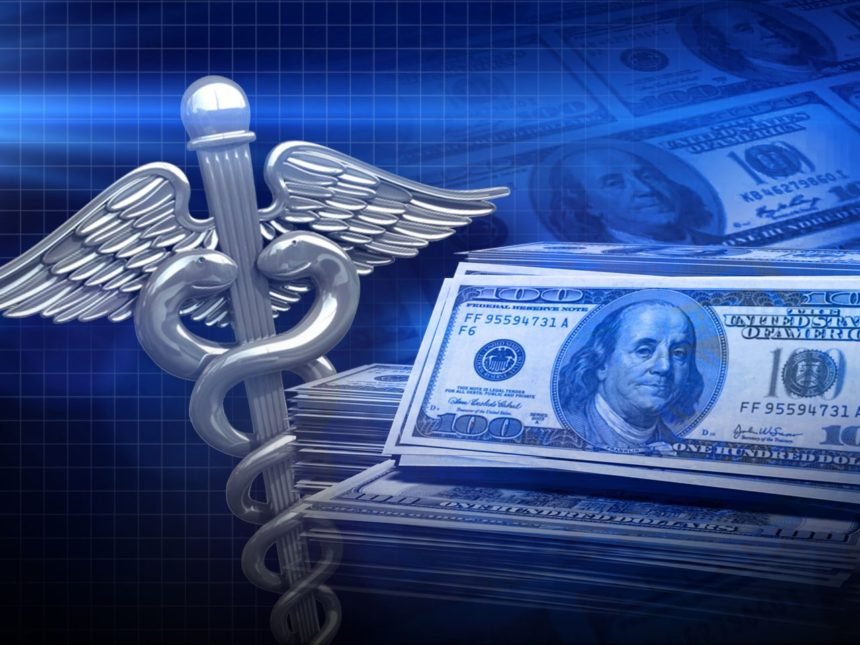Amendment 2 would expand Medicaid in Missouri

JEFFERSON CITY, Mo. (KMIZ)
The issue of Medicaid expansion is back in Missouri.
This time voters, not lawmakers, will decide whether to expand the federal/state health care program for the poor to cover more people.
Medicaid expansion was meant to be part of the Affordable Care Act in 2010. However, Missouri was among several states with Republican leadership that rejected the idea, saying the costs of doing so are not known in the long-term.
The measure would allow adults with incomes up to 133 percent of the federal poverty level to receive medical coverage under Medicaid, administered in Missouri as MO HealthNet. The poverty level is about $22,000 for a family of three.
Under current rules, adults can make only about $300 per month before losing benefits.
Missouri currently receives a 65 percent reimbursement from the federal government for its Medicaid costs. Under expansion, that share would increase to 90 percent.
Some studies, including one by the Institute for Public Health at Washington University in St. Louis, project the expansion would actually be cost-neutral or even save the state money. Annual federal payouts by 2024 are expected to reach more than $900 million, according to the study.
Opponents such as Americans for Prosperity argue Medicaid is inefficient and a poor use of money during tight budget times. They also say the states where the program has been expanded have seen new enrollments and costs outpace projections.
State estimates listed on the ballot don't clear up exactly how much the program might cost or save.
The ballot language includes the following statement: "State government entities are estimated to have one-time costs of approximately $6.4 million and an unknown annual net fiscal impact by 2026 ranging from increased costs of at least $200 million to savings of $1 billion. Local governments expect costs to decrease by an unknown amount."
Who's backing expansion
A large coalition of groups is backing expansion, including the Missouri Chamber of Commerce, which says Medicaid expansion could help struggling rural health care providers and hospitals.
Supporters also argue the measure would decrease the negative economic impact that comes when workers don't get proper medical care. Hospital spending and a healthier workforce overall will help boost state revenue, supporters say.
That broad coalition is called Healthcare for Missouri. According to the coalition, the state is losing out on getting back some of the federal tax money its citizens are paying in. That money instead is going to 36 states that have already expanded Medicaid, the group argues.
Expansion is backed by the Missouri Democratic Party, as well.
Who's opposing expansion
Gov. Mike Parson and many Missouri Republicans oppose the expansion.
Parson drew the ire of many expansion supporters when he moved the issue from the November ballot to the August election. Parson argued the change would give the state more time to adjust to the possible increased costs in a tight budget year defined by the COVID-19 pandemic.
However, opponents said it was a political maneuver meant to ensure the measure's defeat by putting on a ballot in a lower-turnout election.
Americans for Prosperity argues approval would expand a "broken system" and lead to higher taxes and cuts to services.
The ballot language
Do you want to amend the Missouri Constitution to:
• adopt Medicaid Expansion for persons 19 to 64 years old with an income level at or belowb133% of the federal poverty level, as set forth in the Affordable Care Act;
• prohibit placing greater or additional burdens on eligibility or enrollment standards, methodologies or practices on persons covered under Medicaid Expansion than on any other population eligible for Medicaid; and
• require state agencies to take all actions necessary to maximize federal financial participation in funding medical assistance under Medicaid Expansion? State government entities are estimated to have one-time costs of approximately $6.4 million and an unknown annual net fiscal impact by 2026 ranging from increased costs of at least $200 million to savings of $1 billion. Local governments expect costs to decrease by an unknown amount.
